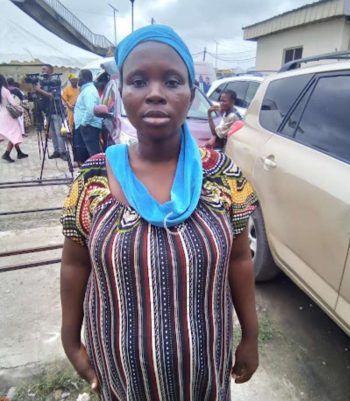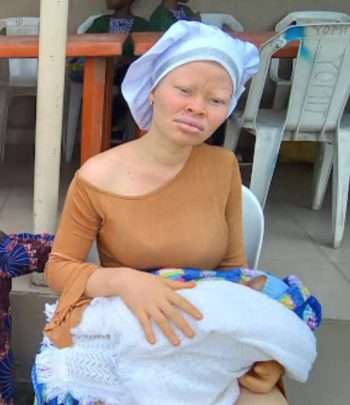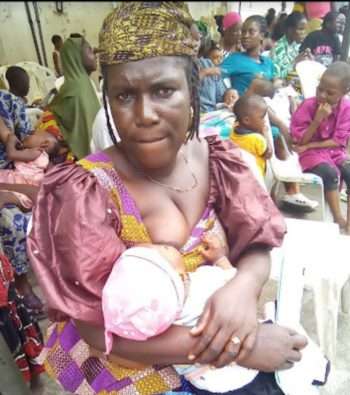
Decades ago, in most African settings, conversations around women’s sexuality and reproductive health rights were primarily controlled by men. The patriarchal nature of these societies denied women access to information and the ability to make informed decisions about their reproductive health. Nigeria, the most populous country in Africa, is not exempt from this deeply entrenched culture, which subjects women’s health rights to male validation rather than recognising them as fundamental human rights.
However, at the International Conference on Population and Development (ICPD) held in Cairo in 1994, a paradigm shift occurred. It highlighted the need to address the reproductive health needs of individuals and couples as a key approach to improving quality of life and stabilising the global population.
The ICPD’s conclusions align with the World Health Organisation (WHO)’s concept of reproductive health rights, defined as legal rights and freedoms related to reproduction and reproductive health. These rights include access to safe, effective, and affordable reproductive healthcare; the freedom to make informed reproductive choices; the right to express sexuality safely and with dignity; the ability to decide if, how, and when to have children; protection from coerced sterilisation or contraception; and the right to equality and non-discrimination.
While reproductive rights are critical for achieving population, health, and development goals, they are a subset of sexual and reproductive health rights (SRHR), which encompass the physical, emotional, mental, and social well-being related to sexuality. SRHR are an integral aspect of universal health coverage.
The Nigerian situation
Interestingly, the Nigerian Constitution also recognises maternal health rights as a fundamental aspect of reproductive rights. Although there is no specific legislation, Section 17 of the 1999 Constitution mandates the government to ensure adequate medical and health facilities for all and safeguard the health, safety, and welfare of all persons. The Constitution also protects the right to life.
Despite these legal provisions, cultural practices and belief systems in some Nigerian communities continue to violate women’s health rights with impunity. While practices like female genital mutilation (FGM) are gradually declining due to widespread campaigns, many aspects of reproductive health—such as safe motherhood and family planning—are still not widely regarded as fundamental rights in many Nigerian households.
Even with sixth pregnancy, my husband refuses family planning – Ogunseye

Interviews with nursing mothers in Makoko, an informal settlement in Lagos State, confirmed the findings of a recent Statista report that highlighted a poor contraceptive prevalence rate of 18 per cent among Nigerian women. Many women disclosed their inability to use any form of contraception due to their husbands’ refusal.
One particularly troubling story came from Mrs Oluwaseun Ogunseye, a mother of five and heavily pregnant with her sixth child. She expressed frustration at her husband’s insistence on having more children and his rejection of family planning (FP). “This is my sixth pregnancy,” she said. “I tried family planning once, but my husband was not happy about it because he wants more children. Most of my friends are in the same situation—they cannot adopt family planning because their husbands disapprove. We’ve been informed about the benefits, but we need doctors to address the men directly to help them understand the importance of giving their wives time to recover fully before the next pregnancy.”
I desire a three-year gap for my children, but my husband won’t agree – Fatai

Mrs Pamilerin Fatai shared her wish to have at least three years between her children but doubted her husband would support this decision. “This is my first child, who is just a month old,” she said. “I’ve heard about family planning and know people who use it. I would like to wait three years before having another baby, but convincing my husband will be difficult. I think health centres and the government should organise seminars for men to educate them about why family planning is necessary.”
Women’s negligence and complaints about family planning

For some women, personal experiences and health issues have influenced their decision to avoid family planning. Mrs Mariam Adeniyi, who had her second child after 21 years of delay, explained, “I don’t think I need family planning anymore. My first child is already 21 years old, and this baby came by accident. At 44, I don’t think I’ll conceive again.”
Similarly, Mrs Iremidayo Yusuf, a mother of four, recounted adverse effects from her previous use of family planning methods. “I experienced bloating and prolonged menstrual bleeding. Although the clinic gave me medication to address these issues, I’m hesitant to try it again.”
I don’t know about family planning, and my spouse won’t allow it – Potan

Ignorance and fear of marital conflict are also significant barriers to family planning. Mrs Celestina Potan
Mr Celestina Potan, a new mother, expressed her desire to have a five-year gap before her next child but admitted she lacked sufficient information about family planning. “My baby will be one year old by January 2025. I’ve been advised against family planning by some of my neighbours, and I’m scared to discuss it with my husband because he won’t support it. If I go for it without his knowledge, it might lead to problems in my marriage.”
Experts advocate gender parity in advancing reproductive rights
Medical sociologists argue that family planning is an essential component of public health, as reflected in its inclusion in the Sustainable Development Goals (SDGs) 3.7 and 5.6 on sexual and reproductive health. However, gender inequality remains a significant barrier to its adoption.
Researchers Amiesimaka Obreniokibo Ibifubara and Shahin Payam, in their study “Family Planning Policy and Gender in Nigeria: A Thematic Analysis of the Government’s Health Policy Perspective”, emphasise the importance of empowering women financially, socially, and educationally. They argue that empowered women are more likely to make informed health decisions, including the use of family planning methods.
The President and Director at DKT International, Indonesia Chapter, Dimos Sakellaridis, in a chat with Pharmanewsonline, highlighted dangers posed by noncompliance with family planning, as it jeopardises the health and safety of the mother and child in many ways.
If a woman becomes pregnant while breastfeeding or if pregnancies are spaced too close, he said it can lead to health problems for both the mother and the baby. “These may include an increased risk of bleeding for the mother and impaired growth and development for the baby,” he disclosed.
Emphasising the importance of understanding these risks for the mother’s and her child’s safety and well-being, he mentioned several contraceptive options suitable for breastfeeding mothers, such as “progestin-only pills, progestin injections, implants, or IUDs. These options can be chosen based on the needs and preferences of each couple.”
In cases of spousal refusal for family planning programmes, he urged concern women to consult healthcare professionals together with their husbands to discuss the importance of contraception and explore the available options. “If the husband does not want his partner to use contraception,” he noted that “there are also contraceptive methods for men, such as condoms, that can be considered.”
Despite several initiatives to promote gender equality, Nigeria ranked 130th out of 146 countries in the Global Gender Gap Report 2023. This ranking highlights the urgent need for governments at all levels to intensify gender equality campaigns and ensure women can exercise their reproductive health rights without societal or cultural constraints.
Addressing these challenges is essential for advancing women’s sexual and reproductive health rights in Nigeria and safeguarding the lives of countless women and children.










